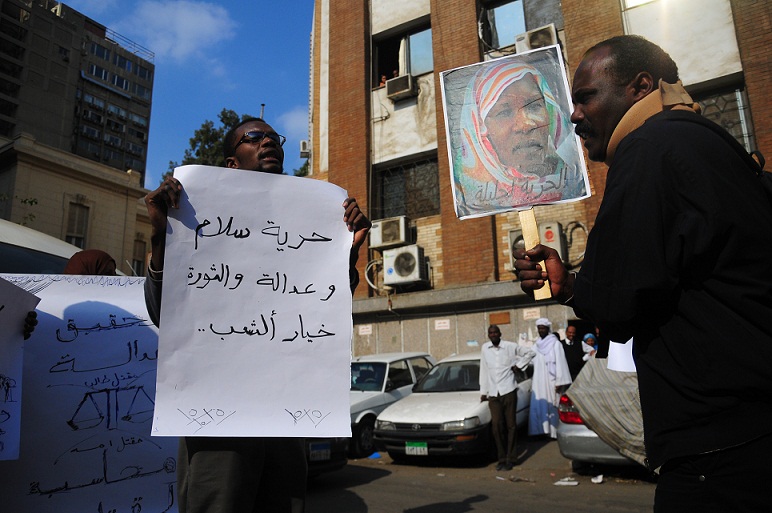CAIRO: In his historic speech to the Israeli Knesset on November 20, 1977, President Anwar Sadat said: “Peace cannot be worth its name unless it is based on justice and not on the occupation of the land of others. It would not be right for you to demand for yourselves what you deny to others. With all frankness and in the spirit that has prompted me to come to you today, I tell you, you have to give up once and for all the dreams of conquest and give up the belief that force is the best method for dealing with the Arabs.
Four years after the 1973 war, Sadat chose to make the most difficult of all journeys to the heartland of his enemies – those who killed his own brother a few years before – to fulfill his vision for a just and permanent peace between Israel and the Arabs.
For peace, he was willing to go “to the end of the earth, he declared. And he did.
The Egyptian-Israeli Peace Treaty signed in Washington exactly 30 years ago on March 26, eventually cost Egypt’s visionary leader his life. He was assassinated in 1981, but in return, the whole of Sinai was back under Egyptian sovereignty.
Although his trip to Jerusalem and the subsequent treaty compromised Egypt’s political clout in the Arab and Islamic world which saw him as a traitor; Egypt’s membership in the Arab League was frozen. Sadat never faltered in his resolve to secure peace, not only for Egypt, but also for other Arab countries whose land was annexed by Israel; a fact that many of his detractors often fail to mention.
Indeed Sadat had devoted over one third of his Knesset speech to the Palestinian issue, at a time when the Palestinian leadership shunned his calls to join peace negotiations for a return to the 1967 borders.
Fast forward to 2009 and the picture looks bleak.
An extreme right-wing Israeli government will be in office soon. And with Avigdor Lieberman (who publicly insulted the Egyptian president for having only made one official visit to Israel during his 27 years in office) slated to be foreign minister, the 30th anniversary of the treaty couldn’t have come at a worse time.
Egypt recently accused Israel of hijacking its efforts to build bridges between it and the Arab world by backtracking from a prisoner exchange deal with Hamas on the heels of an Israeli offensive on Gaza that killed 1,300 Palestinians and wounded over 5,000.
And with an illegal 703 km apartheid wall cutting across the West Bank, annexing more Palestinian land under the guise of security, and more Jewish settlements regularly cropping up, a two-state solution that could lead to a permanent peace seems ever more distant.
An editorial in the state-run Al-Ahram newspaper said, “There is no room for celebration. On this anniversary, there isn’t an atmosphere of optimism and the facts on the ground are not pushing anyone toward celebration.
On a rare occasion where the position of Egypt’s current political leadership reflects the general feeling on the street, the coldness of the peace between both countries is all too evident.
That said, was the peace treaty unfavorable to Egypt? Absolutely not.
Some of those who oppose it cite security restrictions on Sinai and the fact that the Palestinian-Israeli conflict persists, even though the treaty had been conceived as a basis for its resolution. Others (who I believe are completely cut off from reality) refuse to recognize the “Zionist entity in the first place because it is an “occupier of Arab and Muslim land.
They say that because Israel did not respect much of the treaty, then it should be modified, especially since Egypt has made too many concessions to attain this peace.
Even though there is some truth to these opinions, especially in light of the situation at the Rafah crossing where Egypt became embroiled in a deadly Israeli blockade on Gaza precisely because of US and Israeli pressures imposed by the terms of this peace treaty, on the whole the treaty was the best move Sadat could have possibly made at the time. No one can deny that it put an end to the bloodshed and gave us our land back.
The real problem is, to use the words of researcher and columnist Amr El-Shobaki, in an article that ran in Al-Masry Al-Youm last Thursday, is Egypt’s failure to manage “the peace battle over the past 30 years.
In his article, El-Shobaki rejects conspiracy theories that the Camp David Accords hinged on the existence of a weak regime. He contends that the treaty did impose restrictions on Egypt, but that the reason why we have reached this state of weakness is because Egypt capitulated completely, unlike countries like Germany and Japan, which were subjected to worse restrictions after the second World War.
“Unlike Germany and Japan, he wrote, “Egypt voluntarily signed the Camp David treaty. Despite that, [both countries] achieved economic and political miracles while Egypt failed to win the peace battle through economic renaissance and political reform.
Rania Al Malky is the Chief Editor of Daily News Egypt.

